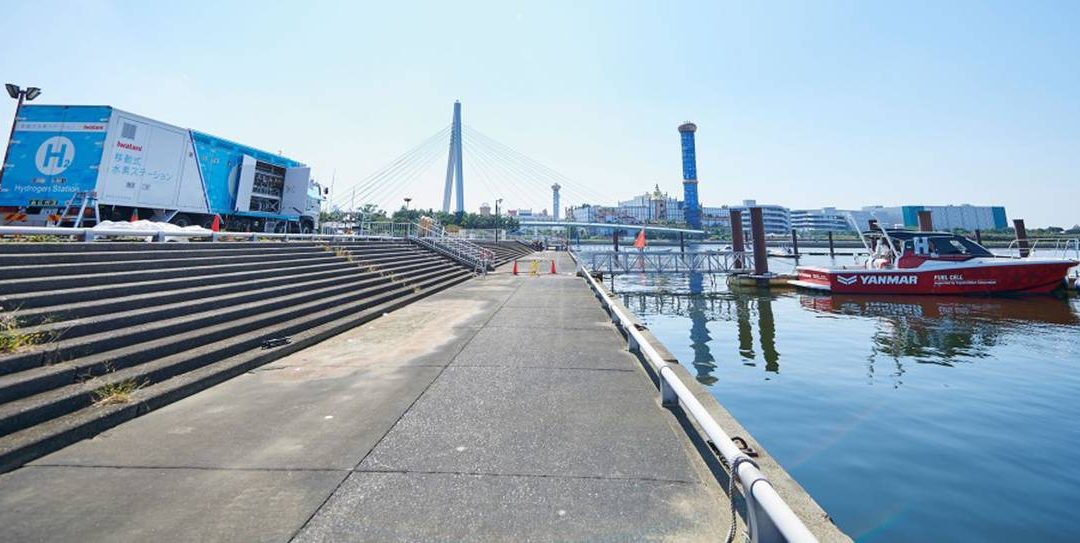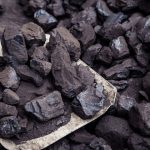Transport and trade on the ocean blue must be made much greener. This is the goal of the new €17 million European GAMMA project, where companies and researchers from Europe will develop and convert a bulk carrier to sail on climate-neutral fuels and green power.
60,000 tonnes dead weight.
That is how much cargo the bulk carrier from TOPIC Fleet which is used as the case study in the new EU project GAMMA, can carry across the world’s oceans. Ocean freight transport requires large amounts of fuel, mainly made up of fossil fuels today. With the GAMMA innovation project, which began in January 2024, a wide range of partners are now working to change that.
This is according to Kjartan Due Nielsen, Innovation Manager at Icelandic engineering company Verkís, which is leading the GAMMA project.
“On behalf of the entire group of partners, I can say that we are proud and grateful that the European Commission has chosen to support the GAMMA project and efforts to convert international shipping in a greener direction. We will retrofit a bulk carrier with highly innovative technologies and during a demonstration campaign we will prove that it is possible to replace auxiliary generators with a new fuel system that runs on e-fuels. After proof of concept in GAMMA the next step would be to replace the main engines of a ship for a full energy transition. All in all, the project is very visionary, and could be a green game changer for shipping in the future,” says Kjartan Due Nielsen.
Climate targets for 2050
Today, long-distance maritime transport supports 80-90 per cent of all global trade. Therefore, there will be considerable potential for climate-beneficial reductions in converting ocean-going transportation to green fuels. The International Maritime Organisation (IMO) has set a goal for the maritime sector to reduce the industry’s greenhouse gas emissions to around net-zero by 2050. The five-year GAMMA project will contribute to this, say representatives from the start-up company Aurelia, which specialises in the concept design of climate-friendly vessels.
“This will include covering and supervising the engineering tasks behind the design and the integration of new green technologies into the ship without compromising its operational capabilities. The integration will be based on a trade-off between weight, volume, cost and, above all, safety. Our challenge is to consider how the systems will impact on the current vessel and to maintain safety in all operations. In this project, we will link a range of technical competencies across the 16 partners from Europe for the benefit of all” says Elena Prato, who with Tomas Veiga, Emmanuel Viglione and other colleagues from Aurelia will gather the threads of the technical project coordination in GAMMA.
Electricity from hydrogen and green fuels
An innovative fuel system will be installed. Ammonia and green methanol will be bunkered on-to the ship and then converted into hydrogen with cracker and reformer technologies. The hydrogen will be purified and then converted into electricity with a fuel cell, which will provide electric energy to the vessel and thus replace the use of the auxiliary generators running on fossil fuel.
In addition to that, the partners have gone further, since part of the energy necessary to convert to hydrogen will be supplied by renewable energy, in this case PV panels, which will be installed on the hatch covers of the bulk carrier.
Fraunhofer Institute provides the conversion technology, Amnis Pura the purifying and the fuel cell is provided by Ballard Power Systems Europe, meanwhile PV panels will be provided by Italian company Solbian.
“We have several decades of experience from innovation within green fuels, and therefore look forward to contributing to GAMMA with our research to convert e-fuels to hydrogen and look forward to bringing the new green technologies in the project forward. Perhaps the results from GAMMA can also be applied in other parts of the transport sector, such as ground and air transport. We look forward to working with our European partners to strengthen the climate of the future, as well as growth and employment, to the benefit of us all,” says Dr Gunther Kolb, Head of Division Energy, Fraunhofer Institute for Microengineering and Microsystems.
More climate friendly sector
The shipping industry will need to adapt fast to new IMO rules as most existing commercial vessels run on conventional fossil fuels. This means the ships will not be commercially nor technically competitive by 2030 if investment in new ships or retrofitting with greener technologies will not take place.
ANT Topic, technical and operational managers of the TOPIC Fleet and partner in GAMMA, explains that the green transition goes hand in hand with the core service of the company:
“ANT has always been very keen to invest in green technologies. We are pleased to have found like-minded partners to bring new technologies and innovative thinking onboard. The GAMMA project will provide the most advanced vessel’s performances and environmental quality without compromising on operation effectiveness and flexibility of our ships,” says Alex Albertini, ANT Topic Srl.
To evaluate the environmental performance of the technologies in the project, Politecnico di Milano will perform a well-to-wake analysis and calculate the CO2 emissions.
More about the GAMMA project
The Gamma project began in January 2024 and will run for five years. The innovation project has received €13 million in support from the European Commission’s Horizon Europe framework programme for innovation. The total budget is €17 million, and the complex application process was led by Inspiralia. Gamma stands for Green Ammonia and Biomethanol fuel Maritime Vessels and involves 16 partners from Europe:
Verkís (Iceland), ANT Topic (Italy), Fraunhofer (Germany), Aurelia (Netherlands), Ballard (Denmark), Sea Green Engineering (Italy), Energy Cluster Denmark (Denmark), SINTEF (Norway), Solbian (Italy), Amethyste (France), Elkon Elektrik (Turkey), Politecnico di Milano (Italy), ARM Engineering (France), RINA (Germany), Amnis Pura (Portugal) and Dotcom (Italy).
Source: Hellenic Shipping News






